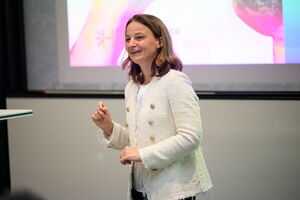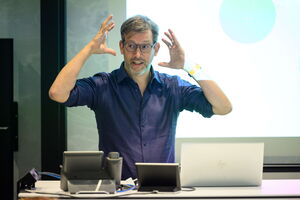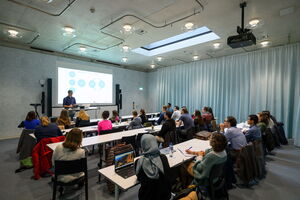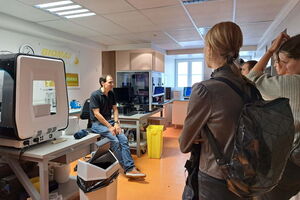Towards more innovation and precision in health
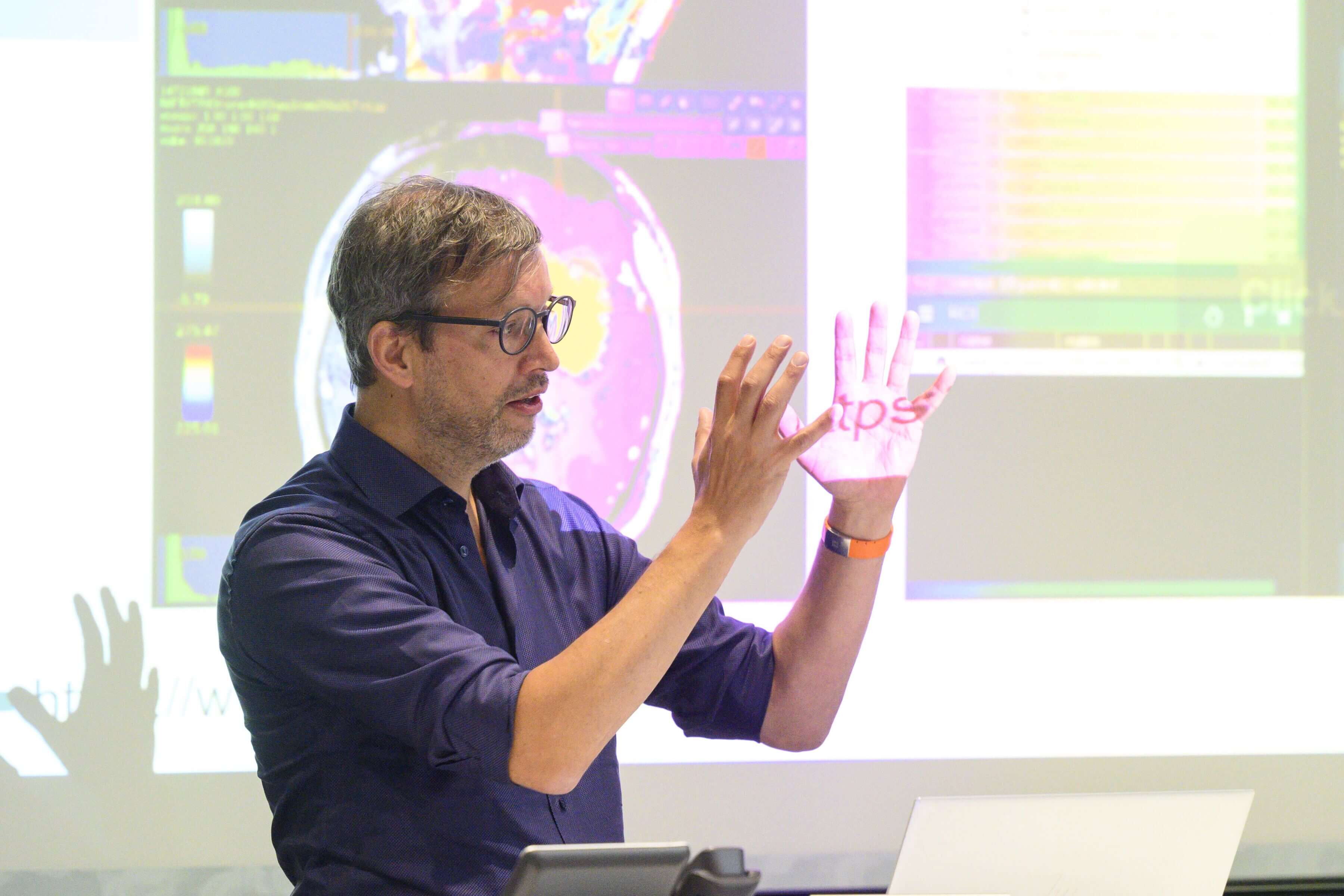
Large amounts of data and the accelerated possibilities for processing and analysing them bring new opportunities, especially in the field of medicine. In autumn 2024, two events took place for interested persons from the Eucor universities to allow discussions and foster cross-border exchange in this field.
“We wanted to address a broad scientific audience in the field of personalised health. That's why we didn't focus on specific diseases, but rather placed methodological and technical aspects at the centre of the events,” says Amandine Bovay from the University of Basel. She organised the events and, together with Siri Leemann, is in charge of the Eucor focus area ‘Personalised Health’ at the University of Basel.
On 9 September 2024, 28 master students, doctoral candidates and postdocs from 4 Eucor universities gained insights into multi-omics platforms at the event ‘Precision medicine in a molecular world’. Today, omics-analysis enables faster, comprehensive insights into entire classes of molecules – such as genes, proteins, or metabolites – revealing complex interactions within biological systems with unprecedented efficiency. In addition to lectures by academic scientists, the start-up ‘Surge Care’ and the contract research organisation (CRO) ‘Novalix’ reported on their experiences. Finally, the participants were also able to visit the omics platform from the University of Strasbourg.
Under the title ‘Maximizing the Potential of Data in Shaping Personalized Healthcare’, the focus on 7 November 2024 was on the topic of data infrastructure. 44 master students, doctoral candidates as well as postdocs from all 5 Eucor universities came to Basel. Before artificial intelligence (AI) can be effectively applied, it requires high-quality, standardised, structured, and interoperable data to ensure accurate and reliable outcomes. The event highlighted the importance of investing in robust data infrastructures and the benefits of collaboration. Prof. Cristina Granziera presented Clinnova, a cross-border project using federated learning, a privacy-preserving technique, enabling personalised treatment for chronic autoimmune diseases. A live demonstration showcased how AI can be applied to imaging with concrete examples for MRI analysis and drug screening.
“Attending the event was an incredibly enriching experience,” says Milana Tasic, doctoral candidate at the University of Strasbourg. “The event showcased the immense potential of data in driving innovation and precision in patient care. It offered valuable insights and practical approaches that will undoubtedly shape the future of personalised healthcare.”
Alongside the new knowledge, the participants also found the cross-border exchange particularly valuable. The challenges of data management in medical and technical terms are similar in all three countries. We all benefit from the dialogue on solutions and optimised use across borders.
Milana Tasic agrees to this: “I hope there will be more opportunities for events like this in the future, fostering collaboration and innovation in such impactful fields.”
